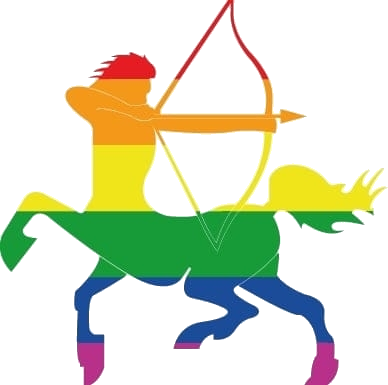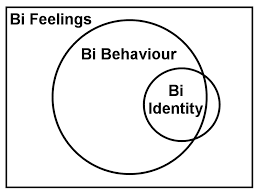With the General Election on Thursday 12th December 2019 fast approaching, there has been much debate on LGBT+ policies within each party. In April this year, LGBT+ inclusive education was implemented into our schools and with the protests that followed some parties have pledged to tackle this homophobia and provide further funding to decrease bullying. Other major issues raised include the gender recognition act, PrEP HIV treatment and tackling anti-LGBT+ hate crimes.
The parties themselves have come under pressure from LGBT+ groups. Boris Johnson has recently come under fire by not wearing a red ribbon on World HIV day and refusing to apologise for a historic comment where he called gay men “tanked-topped bum boys”. However, in the past, Johnson has rebelled against his own party on numerous occasions to support LGBT+ rights, especially in his support for the abolition of Section 28 in 2003. Section 28 was created by previous conservative PM Margert Thatcher which banned local authorities and schools from promoting homosexuality. He was also among a small number of conservative MPs which introduced Civil Partnerships for same-sex couples in 2004, and publicly supported the introduction of same-sex marriage in 2013 but abstained on the extension to Northern Ireland in 2019. Jeremy Corbyn on the other hand has voted in favour of every LGBT+ right since he became an MP in 1983. However, in Labour’s 2019 manifesto section on woman it states “ensure that single-sex based exemptions contained in the Equality Act 2010 are understood and fully enforced in service provision” implying that trans and gender non-conforming women could be excluded from “women’s only services” such as shelters and crisis houses.
Reading through each parties manifesto, there are clear LGBT+ issues raised and considered by all, except unsurprisingly the Brexit party, but there are variations in points as shown below:
Conservatives
- Education: Support LGBT+ inclusion in schools and aim to tackle homophobia bullying in schools.
- Gender Recognition Act (GRA): No pledge
- Anti-LGBT+ hate crimes: Tackle all harassment and violence against religious and LGBT+ communities.
- Gender X passports: No pledge
- PrEP: No pledge
- Healthcare: No pledge
- Spousal Veto: No pledge
- Other: Host the UK governments first international LGBT conference
Labour
- Education: Support LGBT+ inclusion in schools and provide funding for schools to deliver LGBT+ inclusive relationships in education.
- GRA: Push forward law that enables some trans people to have their gender legally recognised with a gender recognition certificate. GRA allows trans people to change name and gender on birth certificate to help getting a job, married or change of records easier.
- Anti-LGBT+ hate crimes: No pledge
- Gender X passports: No pledge
- PrEP: Fully fund sexual health services to provide these. PrEP medicine are pre-exposure prophylaxis medicines which protect HIV negative people from becoming positive.
- Healthcare: Guarantee universal healthcare made accessible to LGBT+ people
- Spousal Veto: No pledge
- Other: Only party pledging to create a dedicated global ambassador to the Foreign Office on LGBT+ issues and aim to ban conversion therapy.
Liberal Democrats
- Education: Support LGBT+ inclusion in schools and aim to tackle bullying on basis of gender and sexuality by providing pastoral leadership and education on all types of relationships. Also pledge for gender neutral uniforms and break down perceptions of gender appropriate subjects.
- GRA: complete reform to remove requirement for medical reports, remove fee and recognise non-binary gender identities.
- Anti-LGBT+ hate crimes: Tackle by making them all aggravated offences and provide training and resources to law enforcement to prevent them
- Gender X passports: introduce the option of “X” gender to cover all gender identity
- PrEP: Ensure HIV prevention is fully available to all who need it on NHS
- Healthcare: Review on discriminatory practices aimed solely at LGBT+ people such as blood donations. Ensure that LGBT+ inclusive mental health services receive funding.
- Spousal Veto: Complete the introduction of equal marriage by removing the spousal veto and allowing marriages that were dissolved solely due to gender recognition process to be retrospectively restored. When same-sex marriage was introduced a married trans person had to end their marriage to gain legal gender recognition, but under Spousal Veto trans people can now seek gender recognition as long as their spouse give permission.
- Other: Only party explicitly committed to reforming treatment of LGBT+ asylum seekers. No pledge made on banning conversion therapy even though party announced its intention to do so. Also include a question on LGBT+ identities in 2021 Census and ban conversion therapy.
Green
- Education: Support LGBT+ inclusion in schools by funding age appropriate personal health and sexual education (PHSE) lessons covering all aspects and end the opt-out of LGBT+ inclusive PHSE classes to ensure every child learns about different couples.
- GRA: Update to allow trans youth and non-binary people to get legal recognition
- Anti-LGBT+ hate crimes: Increasing funding to support prevention and prosecution
- Gender X passports: Change the law so an X gender marker is added for non-binary and intersex people.
- PrEP: Ensure HIV prevention is fully available to all who need it on NHS
- Health care: increase funding to NHS areas relied on by LGBT+ people including trans healthcare, gender identity clinics, HIV treatment and specific mental health provision.
- Spousal Veto: Remove so married trans people can acquire gender recognition certificate without having to obtain permission from spouse.
- Other: Ban conversion therapy
Brexit party
- Education: No pledge
- GRA: No pledge
- Anti-LGBT+ hate crimes: No pledge
- PrEP: No pledge
- Health care: No pledge
- Spousal Veto: No pledge
It is important to take a look at all the policies each party makes but I hope this summary shows the LGBT+ support each party shows, and what they may do for our community if voted in.
















